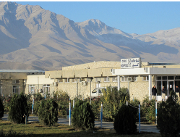
Afghanistan (MNN) —
Anti-government insurgents in Afghanistan launched multiple attacks on Western
targets on Saturday.
Medical director for CURE International in Afghanistan is Dr. Rick
Manning. Their facility is fairly close
to the U.S. Embassy, which did not appear to be among the major targets over the
weekend. He explains, "There were a
number of attacks across Kabul city. I think at least four and then in a
number of provinces as well. They all occurred approximately at the same time–they demonstrated that there was some coordinating effort between all of
them."
The
attacks seemed to be focused on a diplomatic neighborhood and the area around
Parliament. Major targets included the German, British, and Canadian embassies,
the headquarters of Afghanistan's NATO-led forces, and the World Bank Office.
18 hours after the attacks began, rebels who had holed up overnight in two
buildings were overcome by heavy gunfire from Afghan-led forces, and pre-dawn
air assaults on Monday from U.S.-led coalition helicopters. Manning says in the aftermath, "They
(the insurgents) were not really effective, in terms of injuring too many
people. But I guess they were effective in sending a message: when desired, a
fairly large effort could be put together."
It's not the first attack in a green zone. The U.S. Embassy was targeted last
September. At that time, there were
questions about the safety protocols for CURE's partners. Since the step-up in security, Manning says,
"We have kind of built-in mechanisms to deal with this already, but pretty
much, we operated status quo."
The disturbance over the weekend caused a few logistical
issues, however. "There were a number of staff that could
not get into the hospital because of various road blockages. But in that case,
we just notified the staff that were there and asked if they could stay
overtime."
Among the reasons CURE hasn't been targeted: the
facility is not perceived as an outsider. "The Afghan staff is numbering
over 300 in our hospital, currently. The
International staff is numbering at five, or less." Manning adds that living in a war zone means
"unfortunately, the Afghan staff
has been so hardened that in a sense, they shrug this stuff off a lot easier
than we do."
International
staff has been present for seven years. They've
pretty much learned the ropes and how to respond to an increased threat,
explains Manning. "We just
kind of 'hunker down.' We don't traverse
the city during these kinds of times. Of
course, it always causes a lot of concern–more concern with us because we're
not as used to it as the Afghan staff."
In
2005, the Afghan Ministry of Public Health invited CURE International to assume
control of both a partially-restored hospital and a nearby outpatient clinic in
Kabul. By the end of that first year, both facilities were fully operational
and serving more than 8,000 patients each month.
In
addition to providing top quality care, the hospital also offers training
programs for doctors and nurses to further elevate the level of care provided
in the future. Programs include obstetrics and gynecology, pathology,
orthopedic surgery, general surgery, plastic surgery and general practice.
CURE describes itself as a non-profit organization delivering
life-changing surgery and the good news of God's love to children and families
suffering with curable physical disabilities.
"We don't proselytize a lot to them openly. It's actually forbidden. They know that a
conversion to Christianity in Afghanistan is against the law, and to those
people, that means a life sentence," says Manning. However, it's one way to bring the hope of Christ into a difficult
region. "We just live in front of them; we show
them that we love them and that we're there with them,
suffering through these circumstances."
That hope CURE shares is appealing to the Afghani culture. "The
Afghan people are salt of the earth people; they love their families. The ones
being portrayed in the media are the extremists, but the majority of them just
love people. The majority of them are just searching for truth, so I think we
need to pray for that."
Pray for opportunities for the Gospel. Pray, too,
for safety for the staff. Living in a
war zone takes its toll whether or not staff realize it. "We have never been targeted, but I think
haphazard kind of craziness that's all around makes getting injured by
something more likely, so safety is one [prayer request]. Another one is just perseverance in
terms of being able to stay there and stay focused in these kinds of situations."
There's more about CURE's partnership in Afghanistan
at our Featured Links Section.
